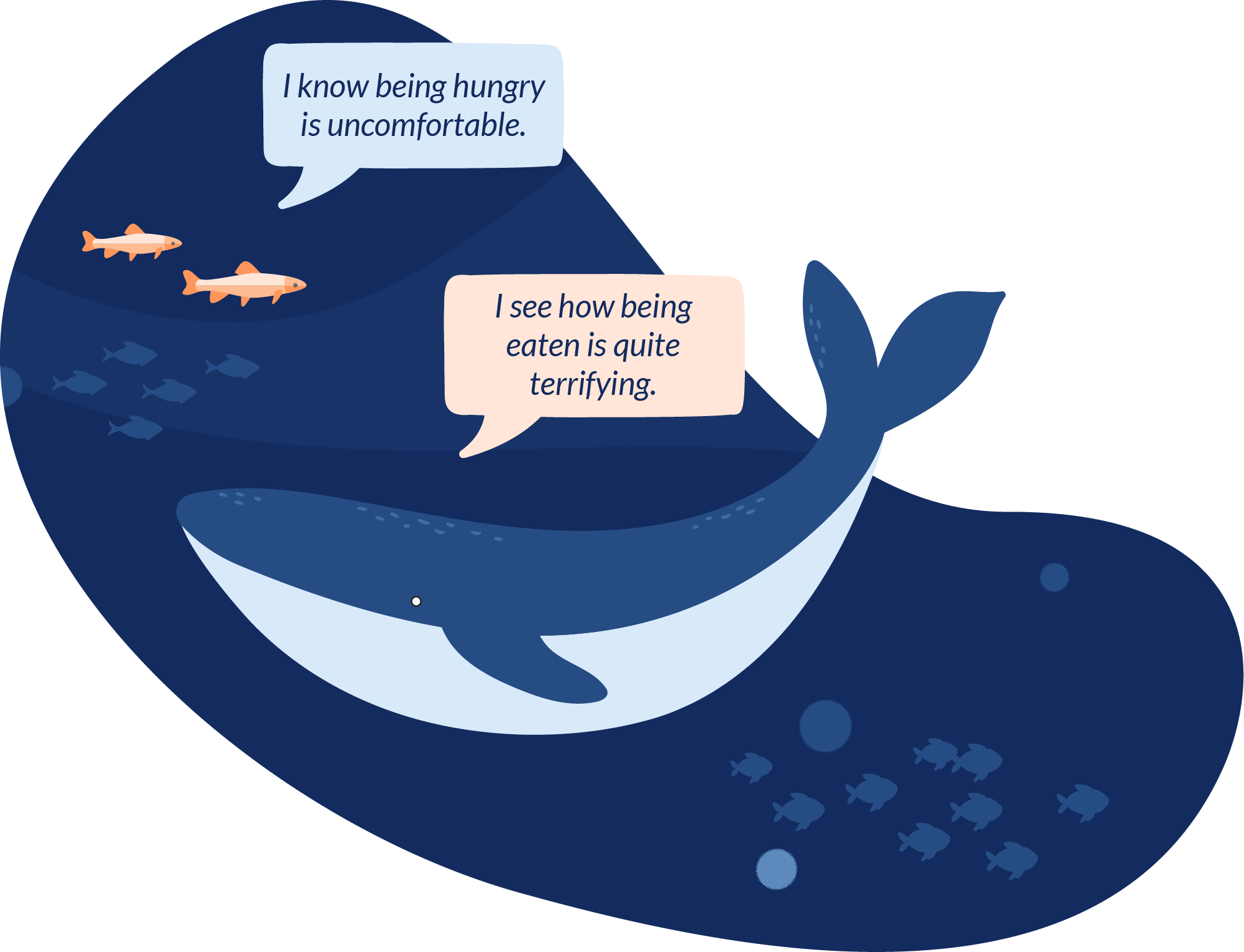The Definitive Guide to Empathetic Conversations
One of the most effective capabilities any leader can command is the power of an empathetic conversation.
This guide will help you:
- Radically transform difficult conversations
- Build a more vibrant company culture
- Lead those around you towards lifetime relationships
What is Empathy?
Empathy is relatively easy to describe but difficult to practice.
Empathy is a state of mind where you experience things from the perspective of someone else. It doesn’t mean you agree with them or support them, but you can understand their point of view.


Wes Spencer
Co-Founder, Empath
"Many years ago, a marriage counselor gave my wife and I some of the best advice we’ve ever heard:

“‘When you’re in a disagreement, be sure you fully understand your partner’s point of view before you retort. And by fully understanding, be sure you can reiterate their issues and concerns with their acknowledgment before you speak to your side.’
We’ve kept that advice and followed it consistently throughout the years. In fact, I attribute much of our marriage success to this advice.
It doesn’t mean that you agree with their point of view, but it proves two things:

1
You care enough to understand their point of view before speaking yours.
2
You understand why they believe what they do and why it’s important to them.
I call this:
The Empathetic Conversation Methodology
It’s a powerful tool that won’t win you arguments but will keep friends and loved ones for life."
4 Tips for having empathetic
conversations:
The poison to an empathetic conversation is thinking you need to win. When you’re more concerned with winning a conversation, any care and compassion for the other person goes right out the door.
A leader doesn’t need to win the conversation. As a leader, you’re already in command. Have you ever noticed how sometimes at the end of an argument with someone, once the emotions have settled, you just laugh at the silliness of the argument?
Unfortunately, not all arguments end up that way, but by checking your ego at the door and realizing that winning the argument isn’t a critical outcome, you can transform from a heated argument into an effective discussion.

“I see your point.”
These four words can disarm a heated conversation faster than anything else. It doesn’t mean, “I agree, you’re right,” but it does signal to the other person that you understand their position.
Seeking to understand someone else’s point of view isn’t always easy (especially when you’re
convinced they’re wrong). However, it’s a critical step to an empathetic conversation that requires more than just replying, “I understand.”
So how do you show them you truly understand where they’re coming from?
- Actively listen
- Eye contact
- Accepting body language
- Hear them out
- Ask questions
- Repeat their point of view back to them

Here's an example:
“Okay, gotcha. I see your point. You’re frustrated because that email that was sent didn’t communicate the priority of this project correctly, right?”
Even with something that short, you show the other person you’re listening, you understand their point of view, and you care enough to communicate it back to them. Now, there’s no more argument to be made, nothing to win, and it gives you a magical opportunity to say, “Here’s what was going on from my point of view…”
From there, a conversation can bloom. It’s not easy. There might be more emotions and moments of seeking to understand, but this is how you unpeel the layers of a disagreement.
Imagine you’re speaking to a mirror. You see the constant reflection of yourself in every way. No detail is missed. In empathetic conversations, you must understand and reflect back to the other person all their feelings by saying things like:
“Right. I completely understand why you’d be frustrated with that. I would be too in your shoes.”
Jumping to their side of the argument and standing alongside them can lead to powerful outcomes.
It doesn’t mean you agree with them (although it might in some cases), but it proves you truly understand their perspective. In most cases, the other person will then be willing to hear your point of view to return the favor.
Note: How you say things is just as important as what you say. Be sure you speak this reflection in a compassionate way, otherwise it might be seen as mockery.

Empathetic conversations don’t happen overnight. They aren’t normal for most people. They require deep internal reflection, control over emotion, and the ability to speak and act deliberately with empathy.
Empathetic conversations take practice. And lots of it. The good news? You have countless opportunities every day to practice empathy, even in small ways.
.png)
Reflect feelings in short conversations with strangers, like a stressed and overworked
waitress. Seek to understand your spouse or children, even in small conversations that aren’t arguments.
Practice seeing their point of view and repeating it back to see if they agree. Watch and notice how the conversation and attitude change. Empathetic conversation expertise comes with deep practice.
If you work hard and often at building this capability, you’ll gain powerful results as a leader in your organization.

.png)





